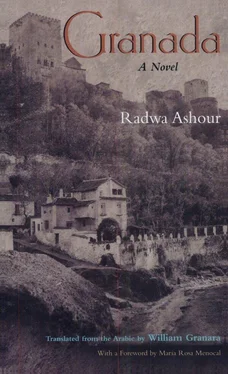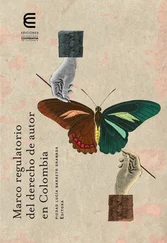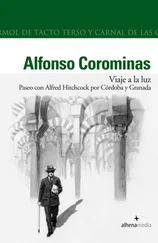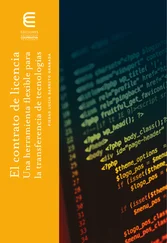Radwa Ashour - Granada
Здесь есть возможность читать онлайн «Radwa Ashour - Granada» весь текст электронной книги совершенно бесплатно (целиком полную версию без сокращений). В некоторых случаях можно слушать аудио, скачать через торрент в формате fb2 и присутствует краткое содержание. Год выпуска: 2003, ISBN: 2003, Издательство: Syracuse University Press, Жанр: Современная проза, Историческая проза, на английском языке. Описание произведения, (предисловие) а так же отзывы посетителей доступны на портале библиотеки ЛибКат.
- Название:Granada
- Автор:
- Издательство:Syracuse University Press
- Жанр:
- Год:2003
- ISBN:9780815607656
- Рейтинг книги:5 / 5. Голосов: 1
-
Избранное:Добавить в избранное
- Отзывы:
-
Ваша оценка:
- 100
- 1
- 2
- 3
- 4
- 5
Granada: краткое содержание, описание и аннотация
Предлагаем к чтению аннотацию, описание, краткое содержание или предисловие (зависит от того, что написал сам автор книги «Granada»). Если вы не нашли необходимую информацию о книге — напишите в комментариях, мы постараемся отыскать её.
Granada — читать онлайн бесплатно полную книгу (весь текст) целиком
Ниже представлен текст книги, разбитый по страницам. Система сохранения места последней прочитанной страницы, позволяет с удобством читать онлайн бесплатно книгу «Granada», без необходимости каждый раз заново искать на чём Вы остановились. Поставьте закладку, и сможете в любой момент перейти на страницу, на которой закончили чтение.
Интервал:
Закладка:
When he turned away from the Darro and headed up toward the hill, the inclining mountainous pass appeared ominous and insurmountable. His legs were barely able to carry him, and he felt as though he were carrying a thick tree stump not humanly possible to bear. He managed to go up a bit further, stopped, and continued his climb. His legs wobbled and he fell flat on his face. A trickle of blood flowed out of his nose and he injured his knee. But he didn’t seem to notice and got up and continued his ascent until he reached the main square of the Albaicin Mosque, now the Church of San Salvador. He sat on a stone bench motionless until sunset. That night, before retiring to his bed, Abu Jaafar said to his wife: “I’m going to die naked and alone, because God has no existence.” And he died.
The men washed the tall, naked body, recited the shahada prayer over it before covering it with the burial shroud. They lifted the coffin over their shoulders, recited some more prayers, then took him to his final resting place.
Abu Mansour, Saad, and Naeem went down into the tomb and with outstretched arms took hold of Abu Jaafar’s body, slowly and gently. They laid him to rest and then came up and covered his grave with soil.
That afternoon Abu Jaafar’s home was swarmed with the neighborhood women who came to join in the mourning ceremonies with the women of the household. They cried together and rivaled one another with stories and anecdotes of the many fine qualities of the deceased. They beseeched God for the patience to endure His decree that given by anyone else would not be so lauded. Saleema was the only one who didn’t shed a tear nor utter a word to any of the mourners. The women may say that everyone’s time must come, but was this Abu Jaafar’s time, or was it the book burning that really killed him?
When the last of the mourners departed and night crept in slowly, when everyone in the house went to sleep, Saleema lay awake staring into the darkness, thinking. She was just as upset as her grandfather by the burning of the books. Naeem had wept bitterly, and Saad and Hasan both looked pale and frightened, but why was it that it was her grandfather who died, suddenly, and without a warning sign, without a previous illness? She had barely reached four when her own father died, but he had been sick and in pain. She used to ask:
“Why is he moaning?”
“Because he’s sick.”
“When is he going to get better?”
“When God permits it.”
But what God permitted was something else, and they took him to his grave.
“Where has he gone?”
“He died.”
“What does ‘die’ mean?”
“That God chose him to be next to Him in heaven.”
She pictured in her mind that God had especially chosen her father to sit right next to Him on a big throne in a heaven more beautiful than all the gardens of Ainadamar, with fountains and water trickling through the towering trees and the brilliantly colorful flowers. She wondered if she should ask God to chose her as well to go to live with Him in that beautiful place or to stay with her grandparents, her mother, and brother. Or should she pray to Him to take all of them together? Then she would think about her playmates and decided it may be best to stay where she was.
One day a little more than a year after her father died, Saleema found a small lizard in the courtyard. She went toward it and when she noticed that it didn’t try to escape from her she picked it up by the tail. It was cold and dead. She brought it to her grandmother: “This lizard is dead, right?” Her grandmother shrieked in disgust and yelled at her to throw it away and go and wash her hands. But Saleema just stood there.
“When lizards die, do they go to heaven?”
Her grandmother muttered something under her breath without answering.
But the question lingered in her mind until more questions began to fill her head: what’s the use of having lizards, bats, and scorpions? And why did God create these species only to have them die later on?
Months later little Saleema asked her grandfather if scorpions and lizards go to heaven just as people do. Her mother pulled her away and scolded her for bothering him with such silly questions, and told her to go outside and play with her friends. But she got no further than the outside door as she stood thinking how absurd it was for dead scorpions and snakes to go to heaven and frighten and bother people. So she ran back to her grandfather.
“Grandfather, do lizards go to heaven or hell when they die?”
“To hell.”
“But what did they do to make them go to hell?”
“Because they cause harm to people, they go to hell.”
She left the house and went out into the neighborhood not entirely convinced of what she had just heard. It’s strange to think that scorpions go to heaven, but even stranger that they go to hell. Didn’t God create them with their harmful sting? They didn’t choose to be born that way, so why should God punish them for something they didn’t choose?
Saleema went back to thinking about her grandfather, about the blazing fire and the piles of smoldering books at Bibarambla Square. She dozed off but soon awoke in a state of fright. She felt a blaze of fire rush through her body, and as she opened her eyes she realized that her whole body was shivering and her teeth were chattering. They covered her with lots of blankets, and in her feverish trance she felt as though she were about to join her grandfather.
The day Saleema recovered from her fever, Umm Hasan wept in sorrow because she was convinced that the illness had impaired her daughter’s reasoning and made her lose her mind when she suddenly leaped out of bed, washed her face, put on her clothes, and announced to her mother that she was going to Ainadamar.
“Yes, I am going to Ainadamar, and if you want to come with me, that’s fine. If not, I’ll go by myself.”
They all tried to talk her out of going, but when they didn’t succeed, they went along with her, thinking that if they made her happy then perhaps she would regain her peace of mind and powers to reason. They rented a cart and went to their country house. No sooner had they reached the front door than Saleema jumped off the cart and went immediately down to the vault. She wiped away the dust as best she could and began to rearrange the books. Then she took out the paper, pens, and bottle of ink she brought with her and made a list of all the books and manuscripts, writing down first the name of the author and then the title. She moved to the next line with the second book and wrote until she reached the bottom of the page. She filled ten pages with each page containing seven titles except for the last, which had only six. When she was finished, she sat Hasan down in front of her and dictated the whole list to him.
“What’s this for?”
“I want two copies of this list.”
6
In the main square in the center of town, where both the old and new casbahs intersect with the roads that lead to Albaicin, a young girl carrying a basket was walking along the street. She had left home to do an errand or perhaps visit an aunt. On her way, either to or from home, God only knows, she walked along minding her own business while the veil on her head failed to conceal her long braids, and her loose fitting gown revealed her slender figure.
She noticed two Castilian men approaching. She lowered her eyes and continued to walk in an attempt to pass them or let them pass her. She glanced up quickly and noticed that they were watching her. She pretended not to notice and quickened her pace. When she looked up again it became clear to her that they were following her. She gasped for air and froze in bewilderment. After several moments she decided to run in the opposite direction. They ran after her until they caught up with her.
Читать дальшеИнтервал:
Закладка:
Похожие книги на «Granada»
Представляем Вашему вниманию похожие книги на «Granada» списком для выбора. Мы отобрали схожую по названию и смыслу литературу в надежде предоставить читателям больше вариантов отыскать новые, интересные, ещё непрочитанные произведения.
Обсуждение, отзывы о книге «Granada» и просто собственные мнения читателей. Оставьте ваши комментарии, напишите, что Вы думаете о произведении, его смысле или главных героях. Укажите что конкретно понравилось, а что нет, и почему Вы так считаете.












